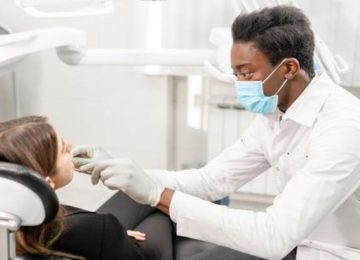It could seem as though a laser is a magic wand that can remove any scars. Medical lasers, however, should not be used carelessly. In order to achieve excellent results and avoid undesirable side effects, it is essential to be aware of these important facts prior to receiving laser for acne scars.
-
- Scars cannot be removed by laser treatment la mesa ca. Thanks to recent developments in medicine, lasers are increasingly being used by dermatologists to cure scars. A laser procedure can:
- Avoid having a raised scar following surgery
- Lessen itch and pain from scars
- If a scar restricts movements, widen your range of motion
A scar cannot be completely removed by laser treatment, although it can be made less apparent. When you receive laser scar therapy, one scar is swapped out for a second, less apparent scar.
- Your laser treatment technician has a significant impact on your results.
A dermatologist with board certification can utilise laser therapy to successfully treat a variety of scars.
If the person performing your laser treatment lacks medical expertise and knowledge of the specifics of your skin, the results may not be what you were hoping for. It could even be dangerous.
- A medical assessment is necessary before beginning any laser treatment. Anyone who offers to treat your scar without first contacting a doctor should be avoided.
List all of the prescription drugs and dietary supplements you take for your dermatology. You might have to stop taking something for a while in order to heal properly and prevent the laser from leaving scars on your skin.
A laser can only be effective if the person utilising it is aware that you are there. Everyone is different. To correctly treat a scar, the individual performing your laser therapy must consider your skin type, the features of your scar, and your overall health.
In the course of the examination, inform your dermatologist if you:
- Get cold sores
- Have any medical condition, including diabetes
- Smoke
- Take any medications or supplements
Your dermatologist should be aware of the outcomes you anticipate from the course of treatment.
- Sun protection is necessary both before and after laser therapy. If you have a tan or a sunburn when you go in for a laser operation, the dermatologist cannot treat you. The use of a laser may cause serious burns or skin discolouration.
You must avoid exposure to the sun while your skin heals after undergoing laser therapy. If the area you received treatment on is exposed to the sun’s harmful rays, your skin could develop another scar.
- You might need to make a few lifestyle changes before therapy. Dermatologists urge patients to in order to recover correctly and benefit from laser treatment to its fullest.
Stop using aspirin, vitamin E, and other drugs and supplements that can slow the healing process.
For two to four weeks, don’t use skin care products that contain retinoids or glycolic acid.
Take medication to prevent cold sores if you are prone to getting them.
Steer clear of the sun, tanning beds, and sunlamps. You cannot be healed if you have a tan or a sunburn.
- Your treatment plan might not consist only of laser therapy. In order to provide patients the best results, dermatologists frequently combine scar treatments. For instance, a dermatologist might use a laser to treat a patient’s severe acne scars. A patient filler is another option.
- You may need several laser procedures. This is frequently necessary when using a non-ablative laser kind of laser. Although there won’t be any downtime with this laser, you could need a few laser sessions to achieve the desired results.
- After the procedure, you must care for the area that was laser-treated at home. If you adhere to your dermatologist’s recommendations for at-home care after laser therapy, you will achieve the best outcomes from your treatment and can prevent potential adverse effects.
- Results take time to manifest. You might not notice any change immediately away because laser scar therapy takes time to work.
- As with getting pico laser, your insurance provider might not pay the full amount. The pain and itching that scars occasionally cause can be reduced with laser scar therapy.
Laser therapy might help you move more freely if a scar is restricting your range of motion. The best approach to determine whether laser scar therapy is appropriate for you is to consult with a board-certified dermatologist.












